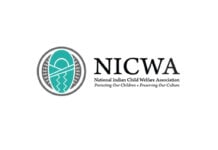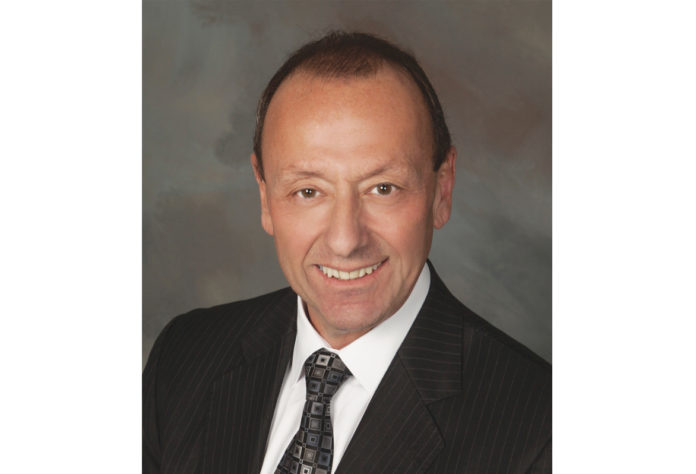by Andrew Klebanow
As Covid-19 continues to spread across the U.S., Indian casino operators are bracing for what appears will be a third wave in the course of the pandemic. To address this, health and safety protocols continue to evolve and for some operators, with renewed vigor.
Indian communities in particular have been inordinately affected by the virus. As of November 11, 2020, the Navajo Nation reported 12,818 infections and 596 deaths. The Mississippi Band of Choctaw Indians saw 10% of their 10,000-member tribe infected by the virus. Recently, Max Osceola Jr., a former leader of the Seminole Tribe of Florida succumbed to the virus.
It is difficult to pinpoint the reasons why the virus has had such a disproportionate and devastating effect on Indian tribes. Multi-generational households certainly play a role in the virus’s ability to spread through a community as is access to healthcare in many rural areas. Other medical conditions leave some people more vulnerable to the virus’s effects. Regardless, Indian casino operators have an obligation to remain extra vigilant in keeping the virus from entering their reservations through their employees and guests. As one preventative measure, over 125 Indian casinos have so far banned smoking in their casinos since the start of the pandemic. The impending third wave presents remaining tribes with a seminal opportunity to take similar measures at their properties.
Unexpected Benefits
The pandemic forced casino operators across the U.S. to implement a variety of safety protocols and in their wake, challenged long-held operating strategies. Buffets, long considered an important marketing tool, were deemed by various health authorities as environments that were likely to spread the virus. When lockdowns were lifted, most operators chose to keep their buffets closed. Most promotional drawings were suspended since they created crowded situations on the gaming floor. Likewise, entertainment venues, because they brought people into close proximity to one another in confined spaces, also remained shuttered. Similarly, many bingo halls, poker rooms and spas did not re-open after lockdown measures were lifted. In addition, the number of gaming positions were reduced and caps were placed on casino occupancy.
Once casinos re-opened, guests returned, mostly in fewer numbers. Yet despite fewer guests, an interesting phenomenon occurred: while overall revenues declined, operating margins in many cases dramatically improved along with increased operating profit. Long held beliefs that a casino needed sufficient gaming capacity to accommodate guests during peak demand periods, a variety of gaming products such as poker and bingo, a constant stream of promotions as well as a wealth of non-gaming amenities in order to attract gamblers, proved to be inaccurate in the era of the pandemic. Could a shift to fully non-smoking gaming environments challenge another long-held belief that one has to permit smoking in a casino in order to maximize profit?
The Casino Manager’s Dilemma
Smoking in casinos has long been an accepted behavior in casinos. There is not a slot director anywhere on this planet who will dispute the fact that a slot machine located in a smoking area generates more revenue than an identical machine in a non-smoking area. It is for that simple reason that many casinos continue to permit smoking. Casino managers have long heard the lament of non-smokers, and many offered those players non-smoking sections, often in separate areas removed from the main gaming floor. Often, these environments lacked the energy and excitement of the main gaming floor. Predictably, those machines operated at a lower volume than those on the main floor.
These examples supported the belief that converting an entire casino to a non-smoking environment would be an economic disaster. Operators have long feared that a sizable minority of customers would boycott their properties if they implemented smoking bans and that rationale was probably valid, up until the pandemic struck the nation. Now, managers are faced with a decision: to prohibit smoking to protect their tribal communities and face possible financial consequences, or continue to operate as before, albeit with other safety protocols in place. This is the casino manager’s dilemma.
What are the risks of implementing smoking bans during this pandemic? There is historical data that measures the effect that state-wide smoking bans have had on casinos. In November of 2002, the state of Delaware mandated that its three racetrack casinos ban smoking from their casino floors. The result was an 11.3% decline in gaming revenue in 2003. This was followed by an increase of 10.2% in 2004 and an additional 4.7% in 2005. Colorado saw a 9.3% decline in 2008-2009, the first year that their smoking ban was implemented, only to see a 9% increase in 2010-2011. In both examples, an initial drop in revenue was followed by a period of recovery, then growth. Of course, these examples occurred before there was a pandemic.
There are also 125 Indian casinos that have already implemented such bans. Initial research into consumer opinions at those properties revealed that the majority of customers have reacted favorably to these prohibitions. In some casinos, a certain percentage of players who had previously grown accustomed to smoking while playing voiced their discontent. Some vowed never to play in their favored casino again only to return when they found a dearth of conveniently located casinos that still allowed smoking. What has also been revealed is that there is a portion of the gaming population that no longer feels safe playing in casinos where smoking is still permitted. It is the sight of masks lowered while patrons smoke that causes this anxiety as well as the smell of smoke in the air; and during a pandemic, those worries are valid.
Cigarette Smoke: the Virus’s Unwitting Accomplice
To understand the risk that smoking poses to casino patrons, employees and the surrounding community, one must first recognize the two primary biproducts of cigarette smoking: smoke and coughing. Smoking generates smoke and it stimulates coughing. While it has not yet been determined if the Covid-19 virus can be transmitted through cigarette smoke or vapor, what has been definitively proven is that the act of coughing is a primary form of viral transmission. Coughing, by definition, is the sudden expulsion of air and mucus from the lungs, which in turn releases respiratory droplets into the atmosphere. If a person has the virus, it can easily be spread by coughing. Facemasks are designed to prevent the spread of those droplets. That is why the CDC and local health authorities recommend that people wear facemasks in public, and that is why all casino operators now require patrons and employees to wear face coverings, except when smoking. In order to smoke a cigarette, it is necessary to remove one’s facemask. Removing the facemask defeats its primary purpose.
The act of smoking a cigarette also requires that smokers touch their lips repeatedly. During that time, those fingers touch chips, cash, cards, machines, seating surfaces and whatever else is in reach. A smoker who is infected and is asymptomatic or whose only symptom is a dry cough provides the virus with an ideal accomplice to help in its further transmission. The virus can then spread to employees, other guests, and then enter the tribal community.
Pandemics Have a Way of Changing Consumer Opinions
For years, casino operators steadfastly refused to address the issue of smoking in their casinos. While 15%of adults in the U.S. smoke, operators long suspected that the incidence of smoking among casino customers was higher. Add in companions who accompany smokers during their casino visits and the argument to forego smoking bans was convincing. Like almost everything though, the rules of casino operations continue to change during the pandemic. The current situation presents an opportunity to prohibit smoking and quickly gain customer acceptance. In fact, there will never be a more opportune moment to address the issue than at the present time.
Long held operational and marketing strategies have recently been proven to be incorrect. Various gaming and non-gaming amenities that were once deemed essential have been proven to be expendable. The belief that smoking is essential to attract gamblers is now also being questioned. The pandemic gives tribes the unique opportunity to move smoking off casino floors for the safety of their employees, customers, and vulnerable tribal members at little risk to property performance. In fact, a phone call to one of those 125 casino operators that already implemented smoking bans can provide further support to this decision.
Andrew Klebanow is a Principal at Klebanow Consulting and has worked in the casino industry since 1977 and as a gaming consultant since 2000. He can be reached by calling (702) 845-7346 or email [email protected].














































